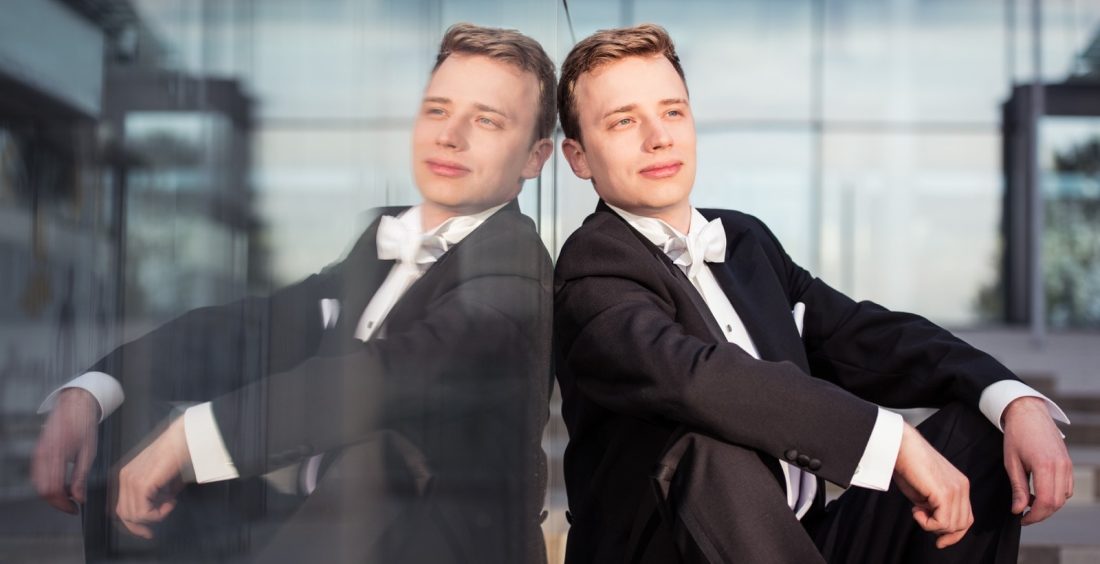Prague Spring Debut
This concert will take place with an audience in the hall.
You can already buy tickets now. For more information please click here.
Did you already purchase your tickets?
News tickets and instructions have been already sent. Should you have any questions, contact our Help desk +420 461 049 232.
The Prague Spring is streaming this concert live on this website as well.
Programme
- Witold Lutosławski: Little Suite
- Robert Schumann: Concerto for Cello and Orchestra in A minor Op. 129
- Jean Sibelius: En saga
- Antonín Dvořák: A Hero’s Song Op. 111
Performers
- Prague Radio Symphony Orchestra
- František Macek – conductor
- Johannes Moser – violoncello
Watch now”
Interview with František Macek
Energy and intensity
For every performer, a debut concert is a challenge, and especially when it takes place before a domestic audience. František Macek is one of the most talented young Czech conductors. So far, he has been working mainly in Scandinavia and Poland. “He capitalises on these experiences in a varied programme combining the music of Antonín Dvořák and Robert Schumann with an exciting piece by Jean Sibelius that is less well known in this country and with a classic of Polish music by Witold Lutosławski,” says the festival dramaturge Josef Třeštík. “I hope that thanks to this debut concert, Macek will establish contacts with Czech orchestras, and that he will win over the Prague public with the energy and intensity he devotes to every work.”
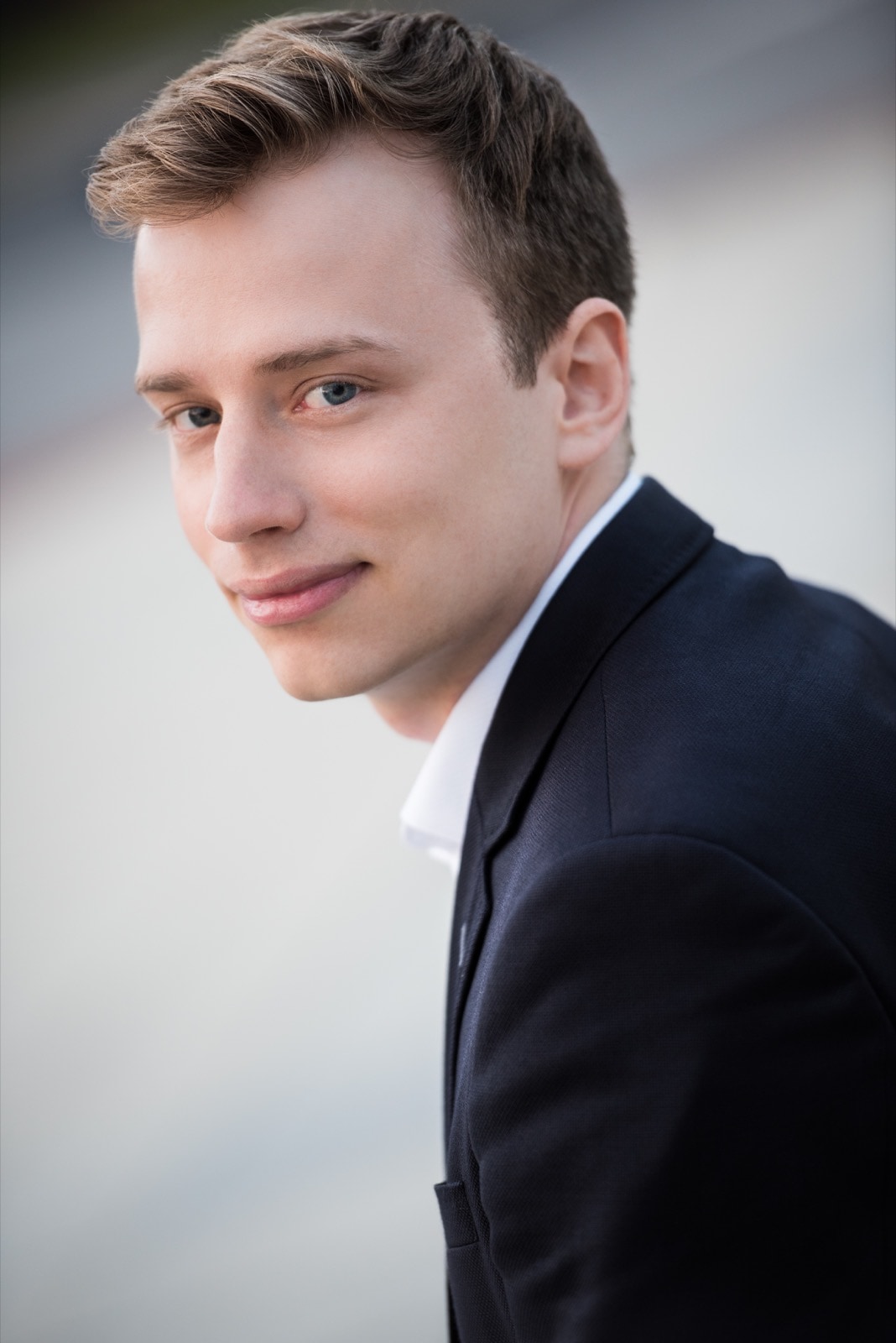
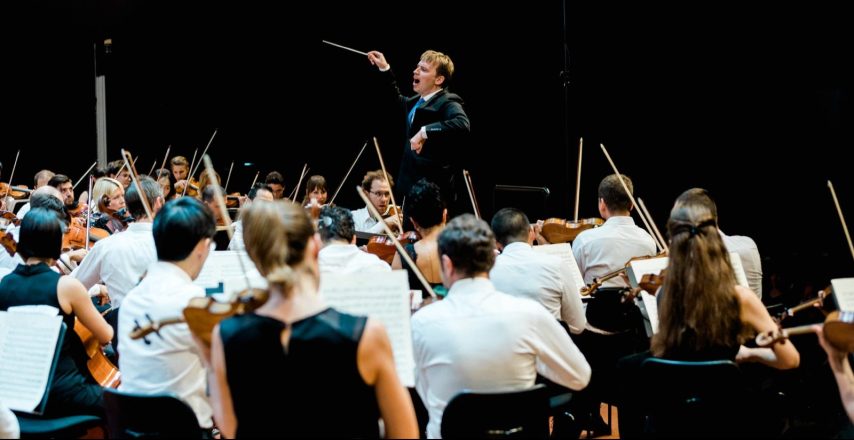
František Macek
František Macek comes from a musical family. All four of his siblings are musicians, and his father František is an organist, composer, and conductor. After having studied at the Academy of Performing Arts in Prague and at the Royal Academy of Music in Stockholm, maestro Macek came to the attention of the professional conducting world when he won the competition for the position of assistant conductor of the National Polish Radio Symphony Orchestra (NOSPR), which boasts one of the best modern halls in Europe. “My task was to do rehearsals in advance with the orchestra for concert programmes of the chief conductor Alexander Liebreich and for Lawrence Foster, then I assisted them with rehearsals in Katowice or on concert tours”, says Macek, recalling his activities in Poland. He was able to expand his repertoire to include works by Gustav Mahler, Alexander Zemlinsky, Arthur Honegger, Krzysztof Penderecki, and many other composers. Ordinarily, it is difficult for a young conductor to get experience with such major symphonic works and with big compositions for vocal forces and orchestra. “Last but not least, I had a chance to work with that excellent orchestra on educational projects, concerts for allied institutions, and a subscription concert of my own.”
Johannes Moser
For Johannes Moser, his appearance at the Prague Spring Festival is also a debut. “I am greatly honoured and enormously overjoyed that I can appear at the Prague Spring Festival in Schumann’s beautiful concerto”, says the German-Canadian musician. A winner of the prestigious Brahms Prize, which has been awarded in the past to such artists as Leonard Bernstein and Anna-Sophie Mutter, he appears with the best orchestras, such as the Berlin Philharmonic, the New York Philharmonic, the Chicago Symphony Orchestra, and the London Symphony Orchestra. He records regularly for the Dutch label Pentatone, and for recordings of music for cello and piano by Sergei Prokofiev and Sergei Rachmaninoff, he has won the Diapason d’Or and the ECHO Klasik for 2017. It is not unusually for this sought-after cellist to have a busy concert calendar. During the 2020/2021 season, he will be appearing with orchestras in Belgium, Germany, Turkey, and France. Moser enthusiastically performs contemporary music. For example, he was accompanied by the Los Angeles Philharmonic and the conductor Gustavo Dudamel in the premiere of Magnetar for electric cello and orchestra by the Mexican composer Enrico Chapela. Johannes Moser also devotes himself to teaching by giving masterclasses and special events for schools. Besides music, he also has a passion for hiking, mountain biking, and reading.
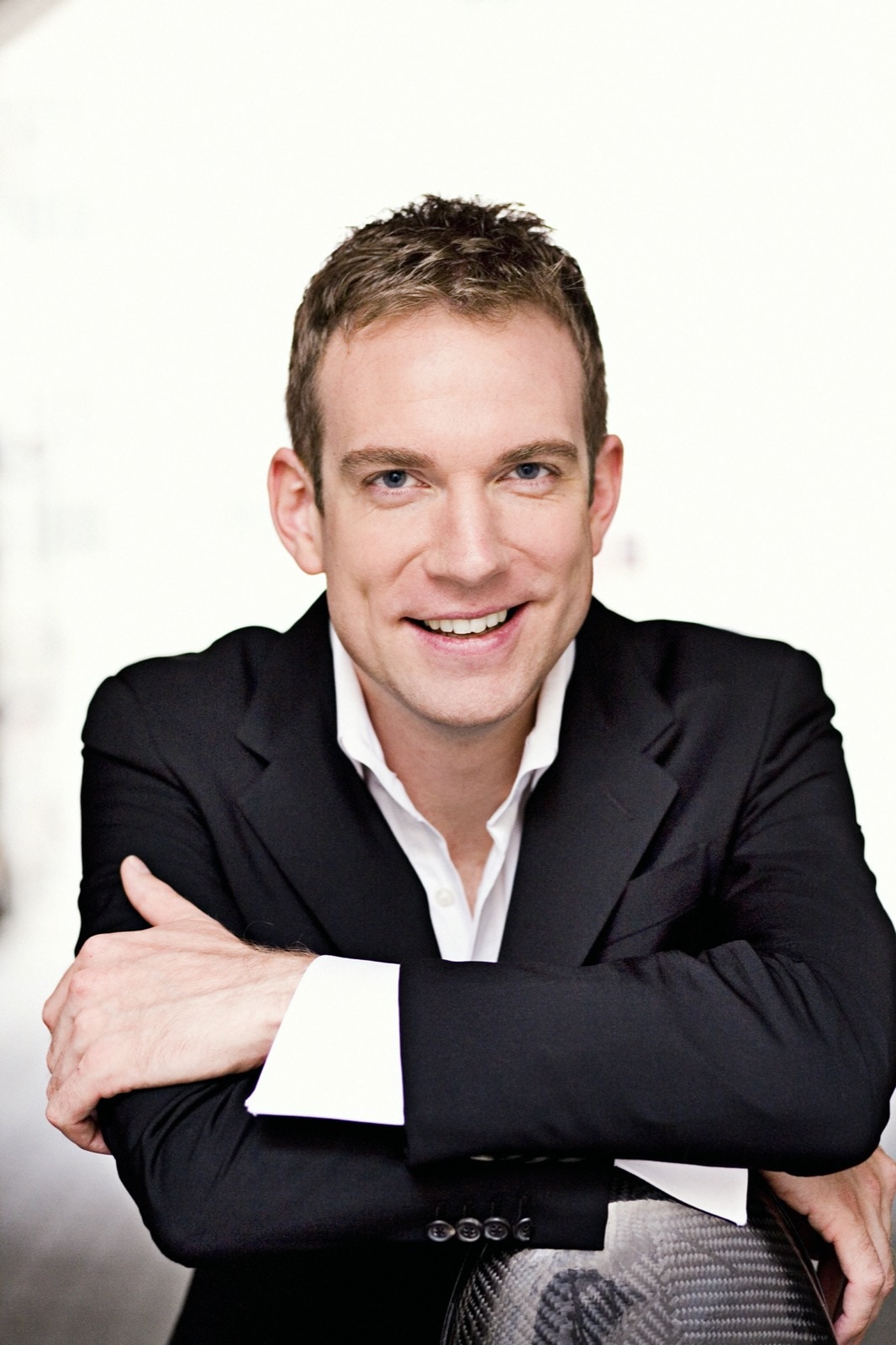
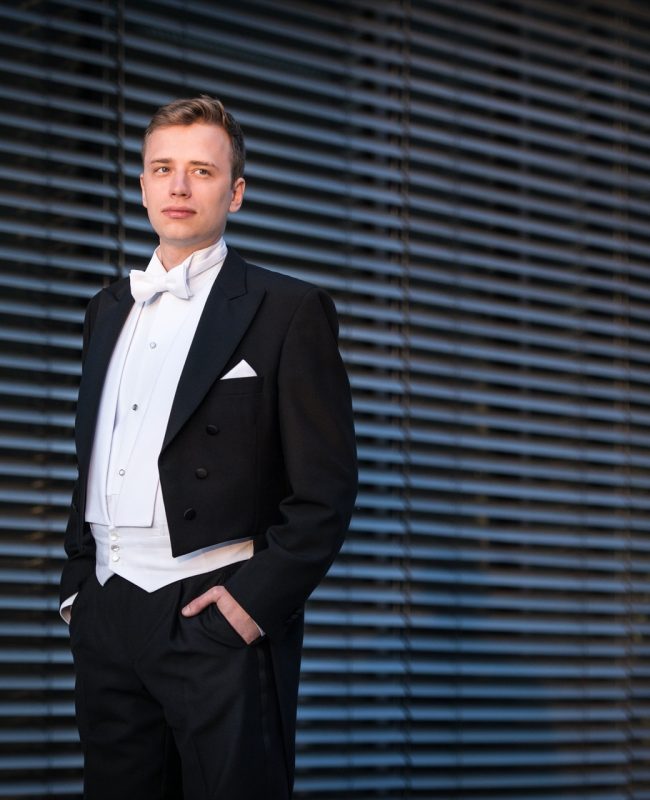
Programme note
Antonín Dvořák (1841-1904) composed A Hero’s Song, Op. 111 after returning from America. This composition capped off his creative period dedicated to programmatic music. After the symphonic poems The Water Goblin, The Noon Witch, The Golden Spinning Wheel, and The Wild Dove, which were composed in 1896 based on ballads from the collection A Bouquet by Karel Jaromír Erben, Dvořák went on to write A Hero’s Song between August and October 1897. The premiere of the symphonic poem took place a year later in Vienna with the Vienna Philharmonic conducted by Gustav Mahler. At Mahler’s invitation, Dvořák was able to be present at not only the premiere of the work, but also the rehearsals. According to a period report by the critic Eduard Hanslick, the public was enthusiastic about Dvořák’s composition: “A Hero’s Song, inspired by true talent and created with superb technique, will certainly triumph everywhere”, wrote Hanslick. “The success in Vienna is promising for such expectations. This very difficult work, played in a stirring manner under Mahler’s direction, created a powerful impression. The composer was in attendance, and the tempestuous applause compelled him to go on stage repeatedly to take a bow in acknowledgement of his success.” There was another performance of A Hero’s Song in November 1899 in Berlin, and that December Dvořák himself conducted it in Budapest. A Hero’s Song is Dvořák’s last symphonic poem and his last orchestral composition. Thanks to its title and content dealing with a hero as subject matter, comparisons with the Symphonie fantastique by Hector Berlioz or the symphonic poem Ein Heldenleben by Richard Strauss suggest themselves. Dvořák described the programme as follows: “What naturally came to mind was more like a spiritual hero, an artist, so I think the hero is suggested by the very first theme. It expresses energy, resolve, and strength (Molto vivace). The second theme (Adagio, quasi marcia) in B flat minor introduces pain, lamentation etc.; D flat major indicates hope, solace etc. Then comes the first struggle. The E major passage in 2/4 time brings new joy and hope in a happier future; at the end come the storm and the final victory of the idea.”. It has only been heard once at the Prague Spring Festival, at the historic inaugural event in 1946.
Deep musical philosophy
Robert Schumann (1810-1856) wrote his Cello Concerto in A minor, Op. 129 in just two weeks in 1850, but the premiere did not take place until 1860, four years after the composer’s death. “Schumann’s concerto has been my musical companion for many years”, says Johannes Moser. “To this day, I’m in love with its lyricism and its beautifully singing melodies, but also with its deep musical philosophy. But it also makes virtuosic demands on the performer”, he adds. “Schumann wrote the composition from the perspective of a pianist. All these figurations go nicely on piano, but it is the cellist’s task to play them on the cello. I have to say that it’s difficult even after all these years. But it’s the sort of difficulty that stimulates creativity”, says Moser.
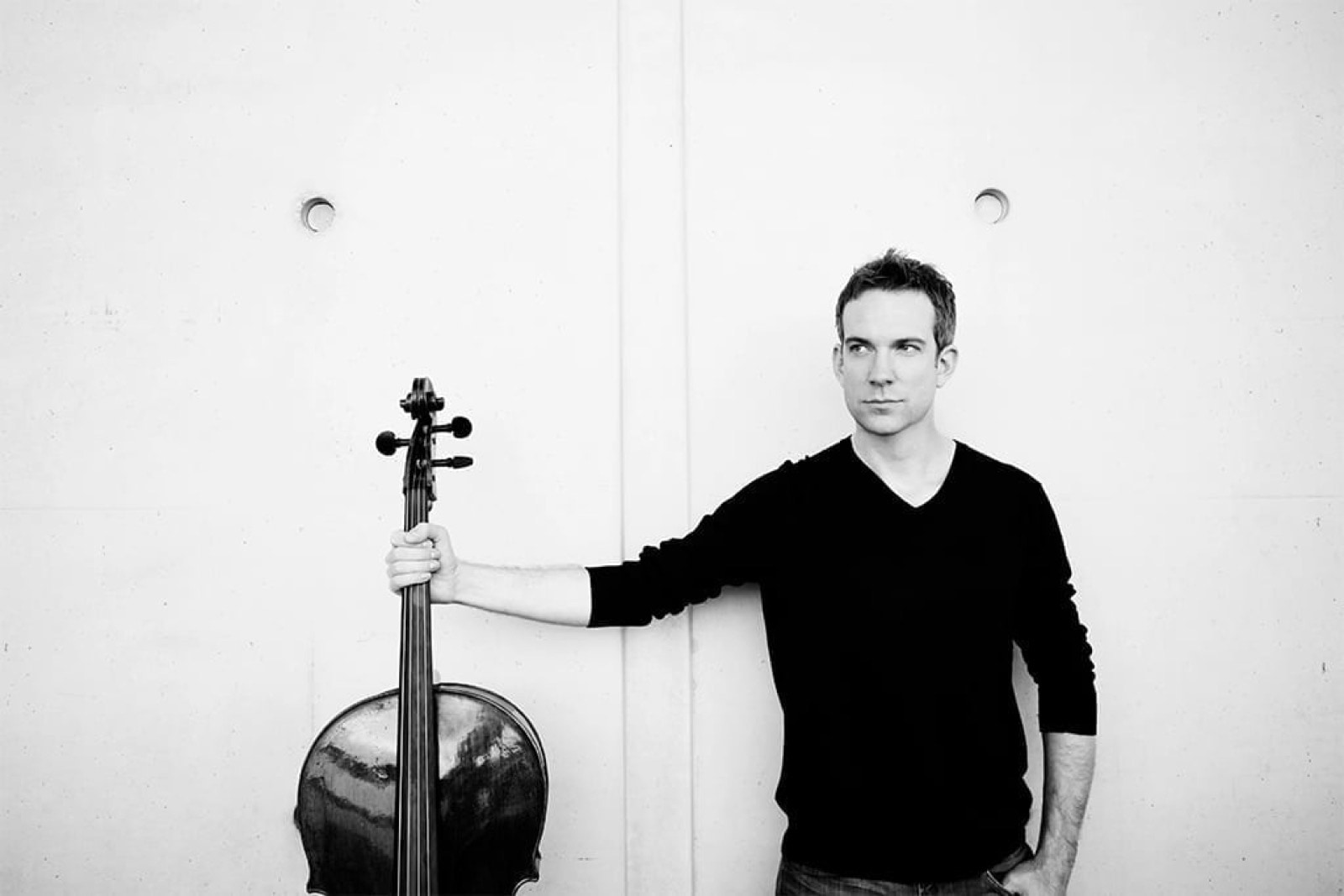
Icelandic saga
Jean Sibelius (1865-1957) is regarded as one of the greatest Finnish symphonists, and for many he is the embodiment of Finnish culture. And no wonder. He wrote seven symphonies and eleven symphonic poems, and he treated themes from Finnish mythology, especially in his early works. Besides the vocal symphony Kullervo, another important work in this idiom is the slightly later En Saga, Op. 9 (1892). Surprisingly, its title refers to an Icelandic saga (edda), but it does not tell a concrete story. En Saga was composed in reaction to a request from the conductor and founder of the Orchestra of the Helsinki Philharmonic Society, Robert Kajanus. After the performance of Kullervo in 1891, Kajanus asked Sibelius to compose a shorter, purely orchestral work that could be used more flexibly. The composer complied, but one definitely cannot speak of the piece as being for small forces or of short duration. Sibelius revised the work, and it is known today in several versions (the final version lasts about 20 minutes).
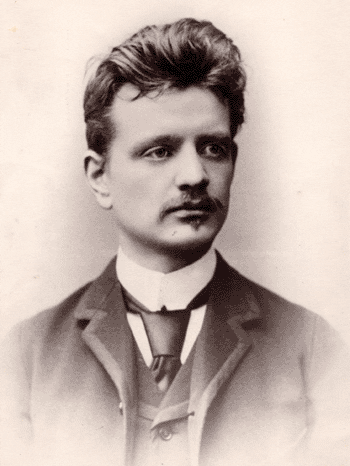
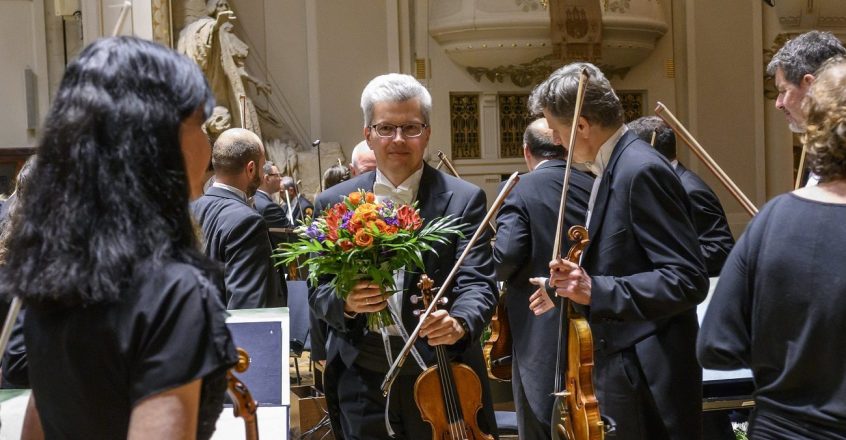
Prague Radio Symphony Orchestra
The Prague Radio Symphony Orchestra is one of today’s most important Czech orchestras. Since the 2018/19 season, its chief conductor and artistic director has been the German conductor Alexander Liebreich.


